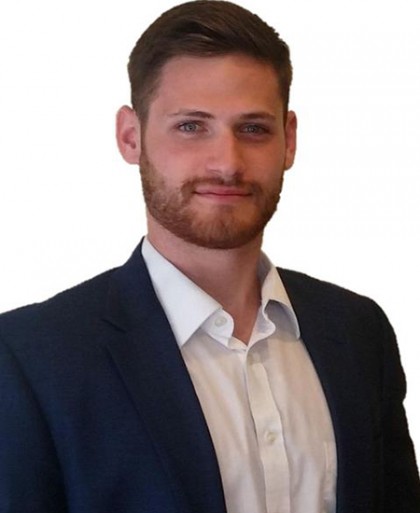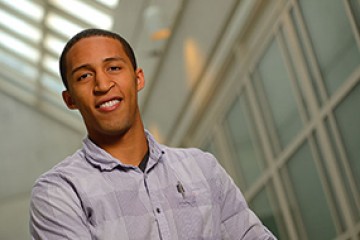David Narrow, who graduated from Johns Hopkins University in 2013 with a master's degree in biomedical engineering, has been named one of Forbes magazine's "30 Under 30" notable entrepreneurs in the health care industry.

Image caption: David Narrow
Narrow, 25, is the CEO of Sonavex, a company that works to improve outcomes for surgical patients by providing clinicians cutting-edge visualization through the use of imaging technology. Sonavex is presently based in North Baltimore and is part of FastForward at Johns Hopkins Technology Ventures, a business accelerator program that supports startup companies.
Forbes recognized Narrow for his company's EchoSure technology, which was developed at Johns Hopkins and earned Narrow's team a win at the 2013 Biomedical Engineering Innovations, Design, and Entrepreneurship Awards competition. According to Forbes, EchoSure ultrasound implant technology "will help nurses find blood clots before they can cause problems." Also noted was Narrow's work with MonoMano Cycling, "a company that makes adaptive bikes for stroke survivors and people with similar limitations."
"I'm extremely humbled by this honor, which is a testament to the talented people I work with every day at Sonavex," Narrow said via email. "It's been a really exciting time for us, with many positive milestones, and our success can be attributed to the hard work and dedication of the founders and our employees—they deserve the spotlight, too."
Narrow is a graduate of the MSE program at Johns Hopkins in the Center for Bioengineering Innovation & Design, which focuses on preparing leaders in the design and development of health care solutions.
The "30 Under 30" health care cohort was selected by panelists Bob Kocher, who helped craft the Affordable Care Act and whose investments aim to fix the health care system; Steven Nissen, the past president of the American College of Cardiology and author of 350 scientific papers; and Vivek Ramaswamy, an alumnus of the Forbes "30 Under 30" list who is responsible for one of the biggest IPOs in biotech history and who works to help drug developers get their products to market.
Read more from ForbesPosted in Health
Tagged biomedical engineering









